35 years ago my family moved from America to Jeju Island. We lived there for just over a year. I was six then. While we were there, my father took a bunch of photographs. But they got buried away in a pile of boxes, stored along with all the other stuff families collect.
I remember seeing the Jeju photos as child when we came back from Korea. Whenever friends would come over, my dad would pull open the big white viewing screen, turn on the slide machine – I can still hear the whizzing the of the fan cooling down the bright viewing light – and then dim the lights.
The carousel made a clicking sound as the slides dropped in and out: a Korean grandfather in traditional clothing, Hallasan Mountain, or the ubiquitous haenyo or woman diver. The exotic images and my own experience living in Korea as a child were enough to convince me to travel the world as much as possible, and one day go back to Jeju.
Time went on and the photos and slide shows disappeared with it. Ever since I came back to Korea in 2007, my father and I talked about digging up those old photographs and converting them to digital files. Whether it was for educational purposes, or purely for entertainment value, we both felt a need to share them. The following is a small collection of some of those images, along with an interview with my father.
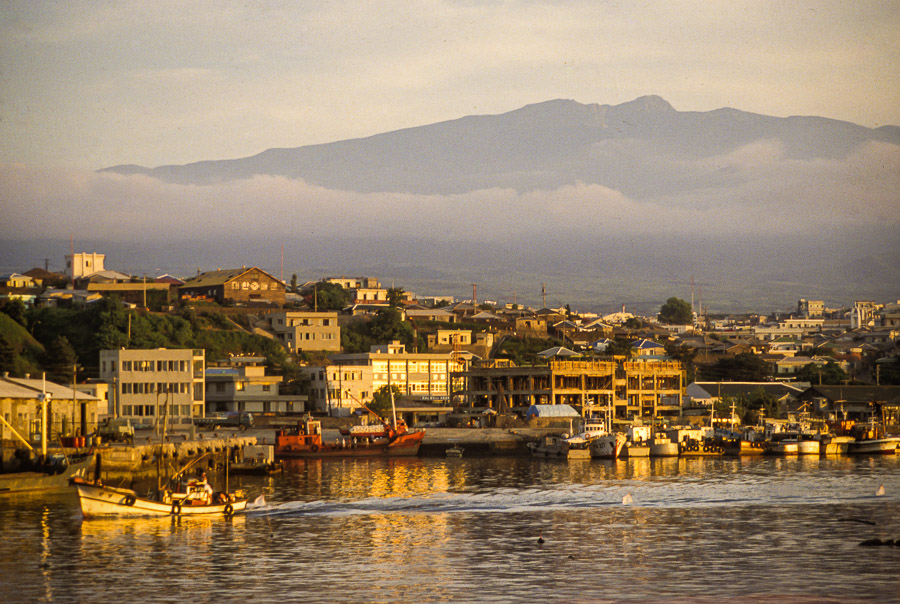
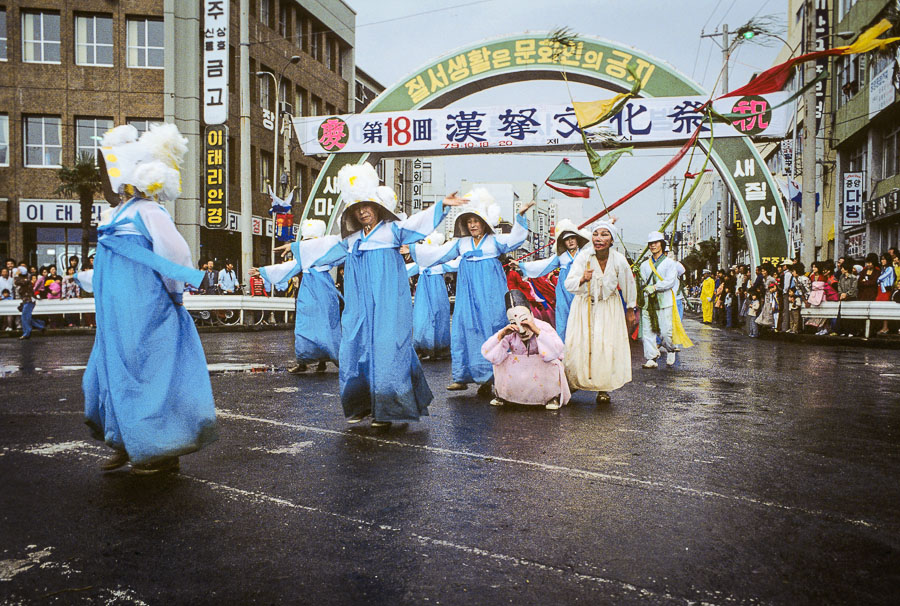
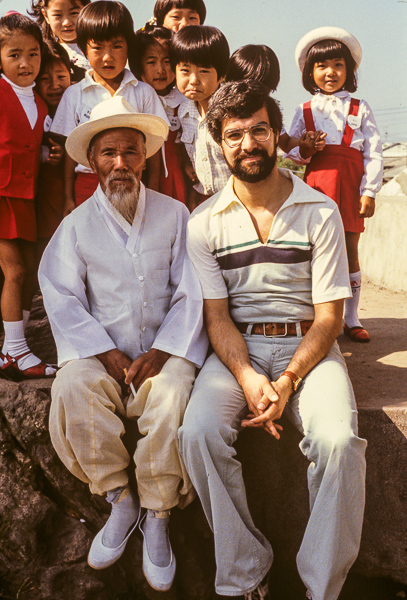
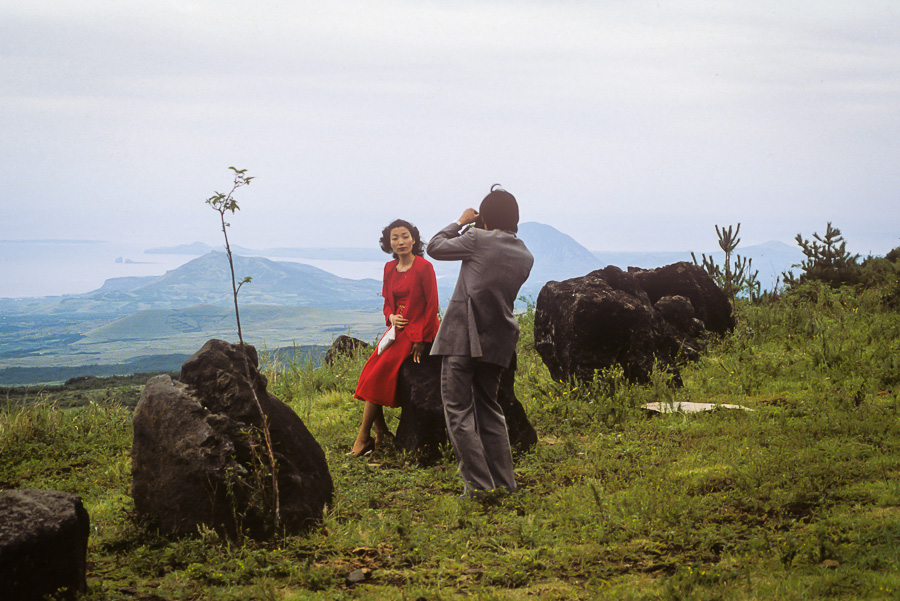
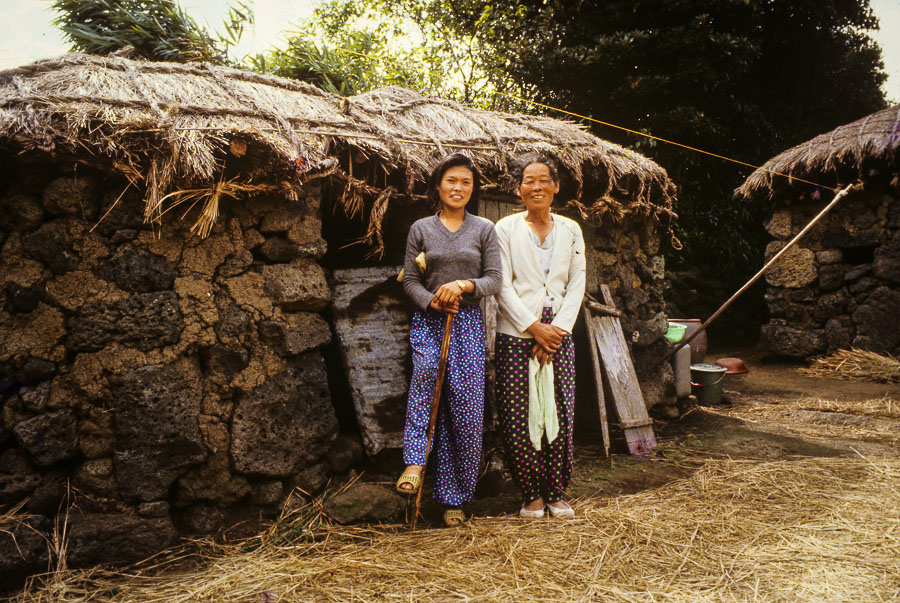

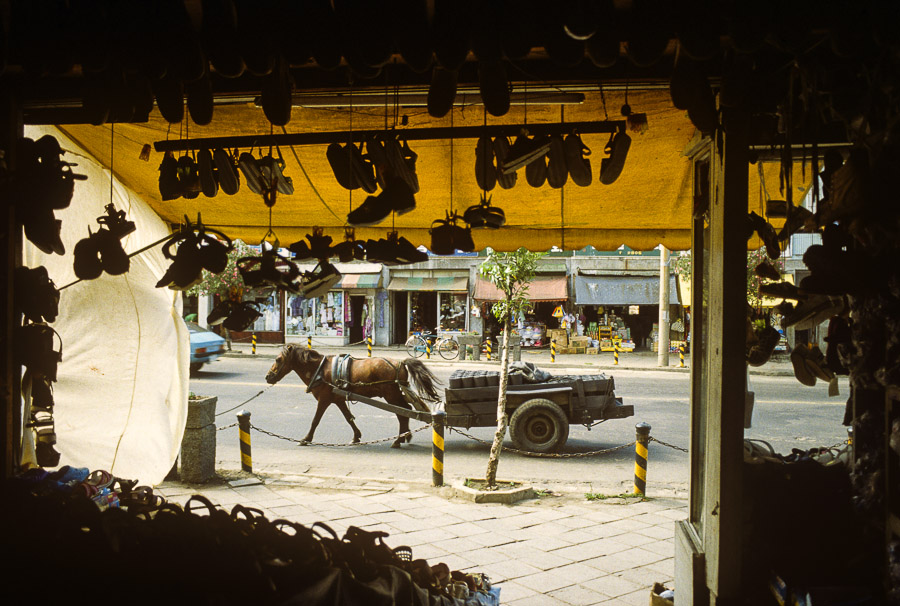
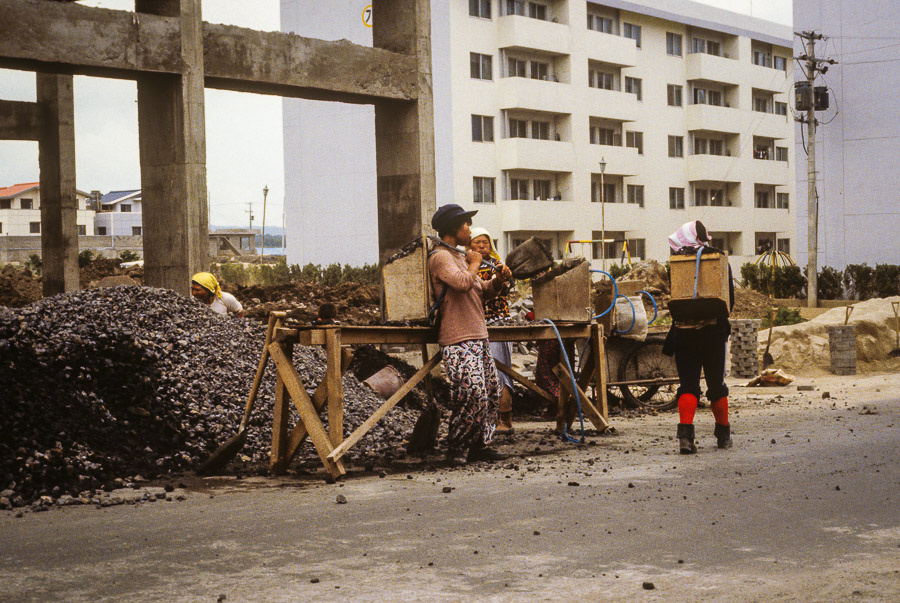
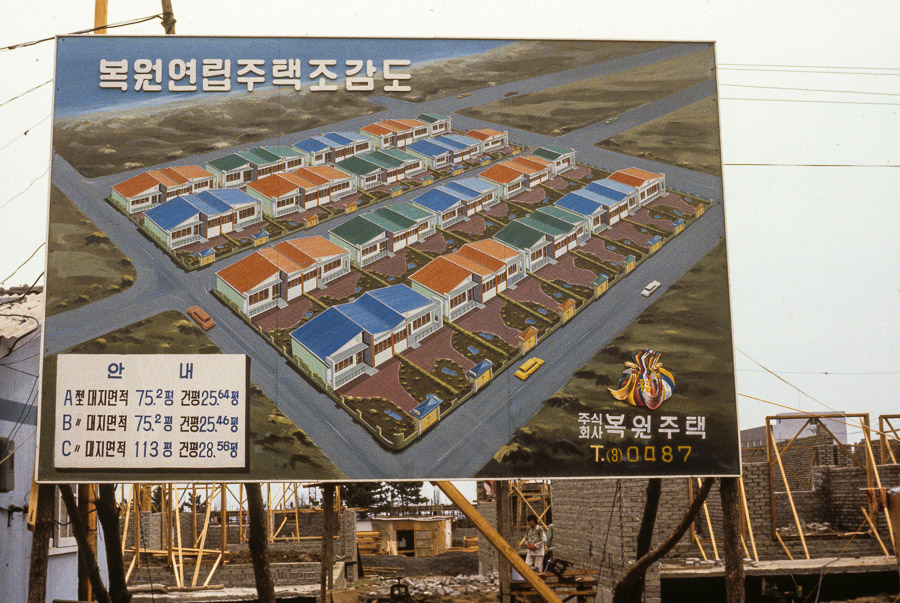
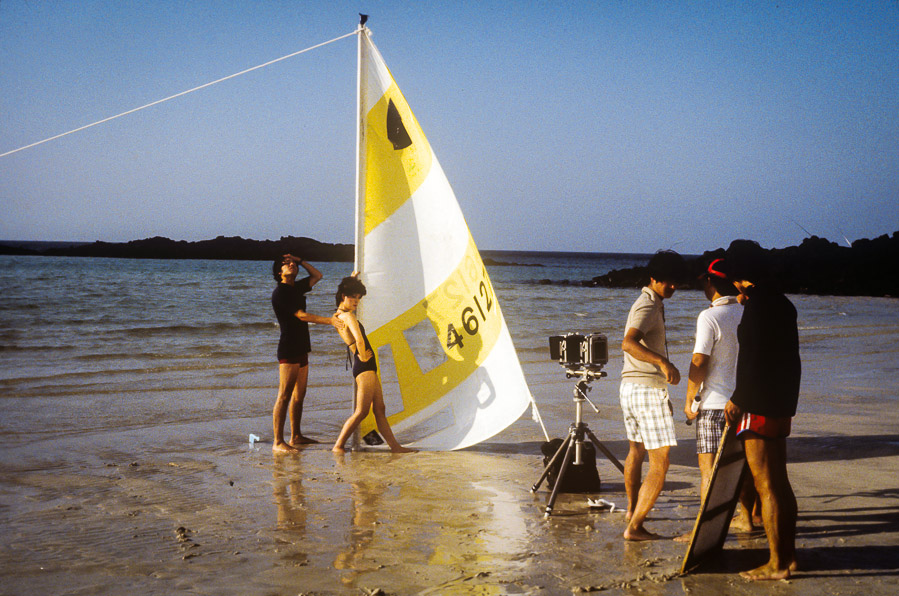
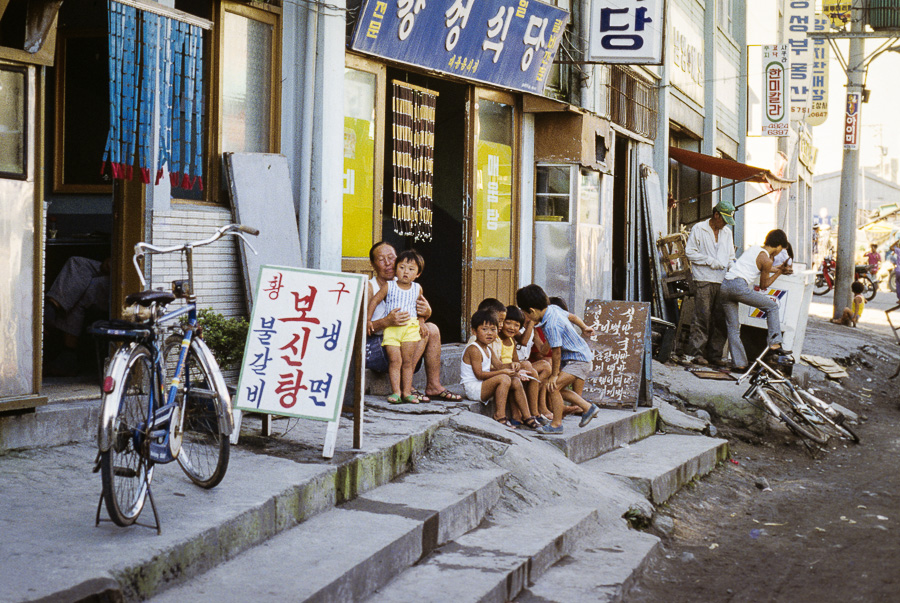

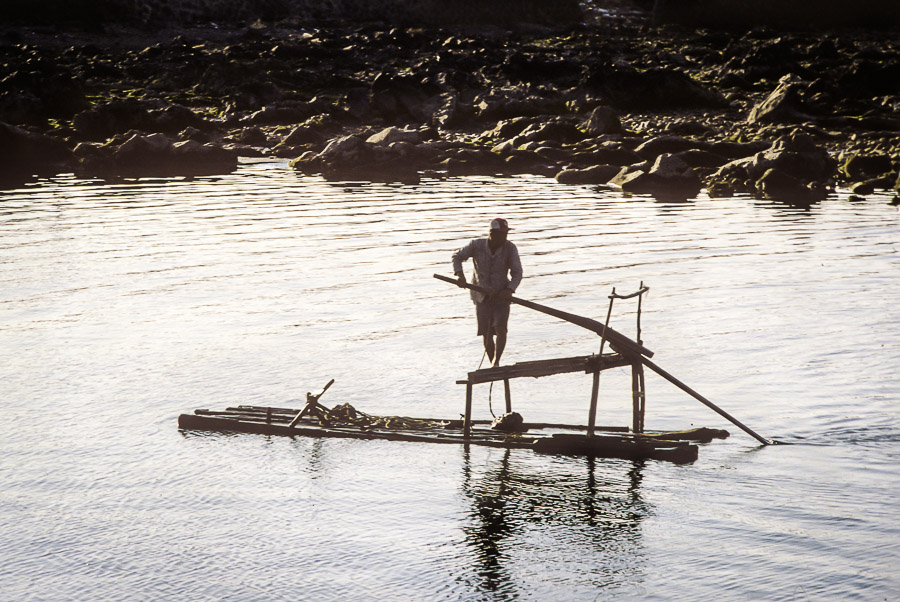
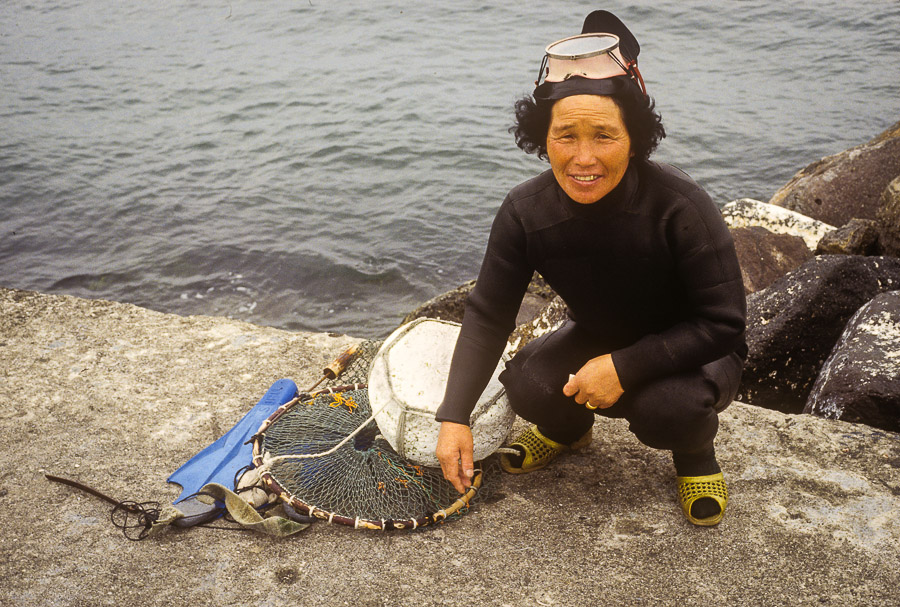
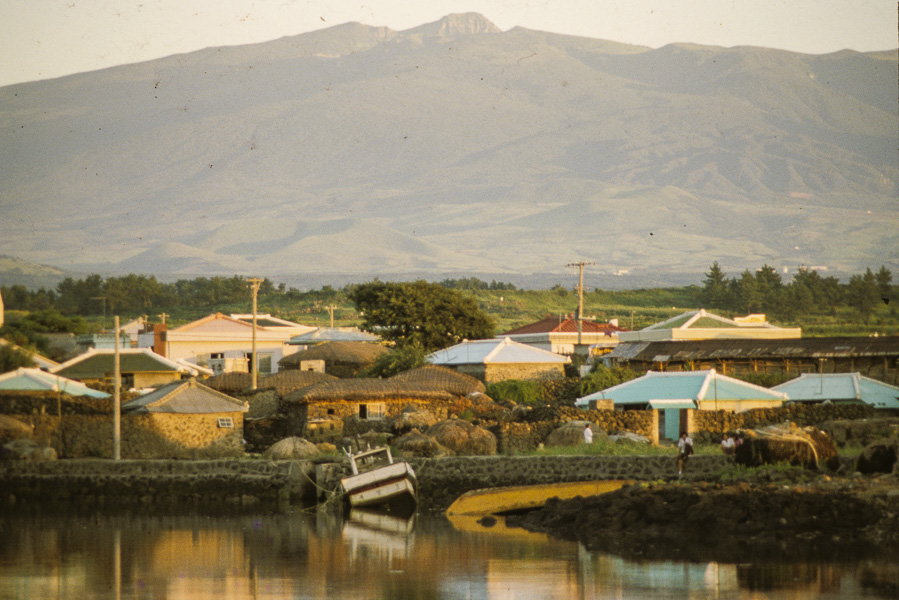
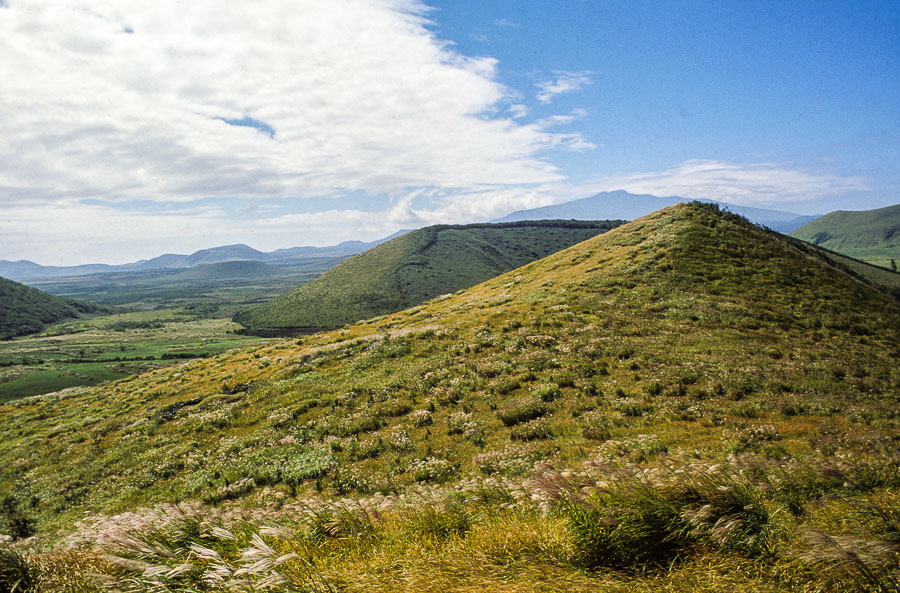

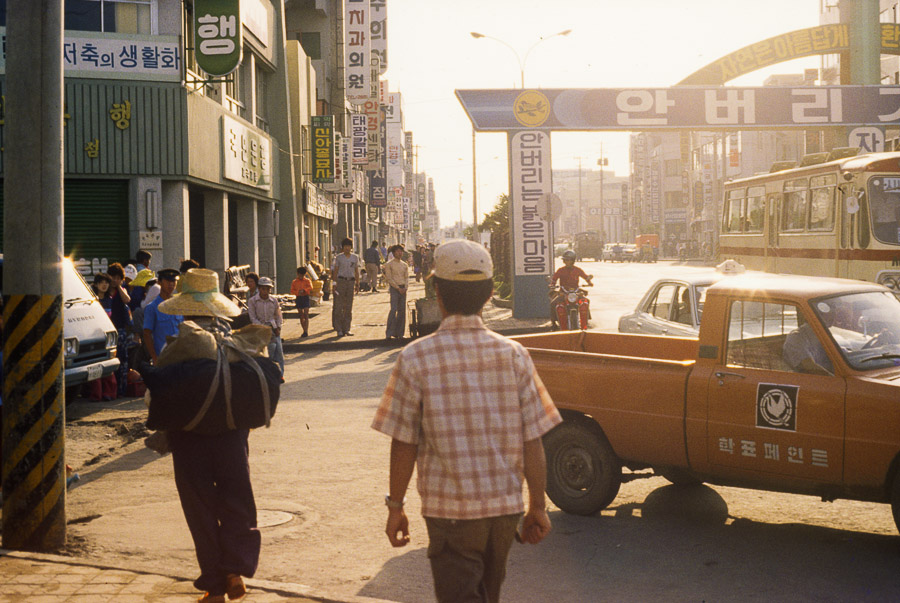

An Interview With My Father
Now that we’ve digitized the photos, I wanted to find out the story behind them. I wanted to know why my father made the choices he made. So I asked him a few questions about that part of our lives, and here’s what he had to say.
Me: What brought you to Jeju in 1979?
Dad: An independent study course for my masters in International Studies at Central Connecticut State University. My advisor, Dr. K.L. Koh, knew I had been a Korean linguist in the Army and had spent a year in Pyeong Taek already and asked me to go back to his home island of Jeju to begin an exchange relationship teaching English at Jeju National University. In addition I wanted to do an article for Nat Geo and continue a Korean art business I started with three of my army buddies and Jeff.
What was your first impression when you arrived in Jeju? You went over first and then we came a couple months later.
I was scared and really alone. I felt like I was on a different planet. No one spoke English. My first night there was stormy, cold and dark. Your mom was pregnant with Matt and I felt really guilty about leaving her and you. My first dinner there after I got off the plane in Jeju City I’ll never forget. I ordered from a picture menu, lobster and octopus. When I got served, both were moving.
What did you know about Korea before you went?
I had spent a year as a Korean Linguist for the U.S. Army Security Agency in Pyeong Taek at Camp Humphryes. Your mom came a few weeks after I got there in 1972, and because Korea was so primitive then, dependents were not allowed for enlisted men so we lived off base in Korean style housing with yeon tans and an outhouse. It was really hard but we learned a lot about how Koreans lived back then.
What was it like teaching English at Jeju National University?
I was really shocked at what I found. The “language lab” was a bunch of broken down tape machines. Nothing worked. I became the tape and wore my voice out so many times. All of my Jeju students looked at me like they never heard English. Park Chung-hee was a total dictator then and there was a big pro-democracy movement led by academics and students and the Jeju kids, although backward then, were just catching on to things. Then the massacre in Daegu happened and things got really serious. Then Park got assassinated. Really turbulent times.
What was it like raising a family there?
An almost impossible challenge. We were the only western family at Jaewon Apt. You knew no Korean. The first apt JNU put us in had holes in the walls behind the cabinets and rats would come in. Finally after a few weeks we got a much better apt from JNU. Mom got sick just after she came with you from exhaustion probably and almost died when she got antibiotics that she was allergic to. Matt got sick also with really bad eczema. The only western medical help we could get was the nuns at Hallim.
You went back to Jeju a few years ago. How has it changed?
I didn’t recognize it. I was stunned at the development, new architecture, new roads, a complete transformation. It had changed from a primitive backwater place to avoid, to a modern and beautiful resort destination.
How did you get into photography? Why did you shoot mostly slides? Did you have any training to learn how to use your camera?
I always enjoyed taking pictures. During my Army tour in ’72-’73 we had a darkroom and lots of my buddies were into taking shots of Korea. It was a strange and beautiful place. We got into developing our own film, B&W, and color. The best film back then was Kodachrome and Ectachrome so we had a great little informal Photo Club. Also, for my Nat Geo article, slides were the highest quality image you could get.
Was there anything in particular you were trying to document/capture with your camera? Why?
I knew that Jeju was going to change forever. Dr. Koh told me about the billions of won that the government was going to pour into the island for development. Being “modern” was more important to them than preserving the unique culture of Jeju. I knew lots would be lost forever so I wanted to preserve a small slice with my shots. Plus, I was to submit the photo essay for my independent study at Central Connecticut State University.
What did your friends and family say when you said you were moving to Jeju.
They thought I was crazy. It devastated your mom that I would leave her with a little 5 year old and expecting a baby. It caused a lot of pain for all of us but I felt I had no other options as it seemed a path was laid out for me to go back to Korea for lots of reasons and I couldn’t get a job in the U.S. I’ll never forget the look in your eyes when I left you.
How did the locals treat you?
Some treated us really well and were sorry for the tough time we were having. Kyeong Hee was a godsend, helped mom so much with all the challenges. We made some Korean friends but others looked at us like we were from Mars. There was only one other American on the island then and only one other foreign family with kids. It’s crazy but I think I’d do it again.
Click here to read Part 2 of Echoes of Jeju
[This article originally appeared in the August 2014 issue of Groove Magazine.]


Recent comments